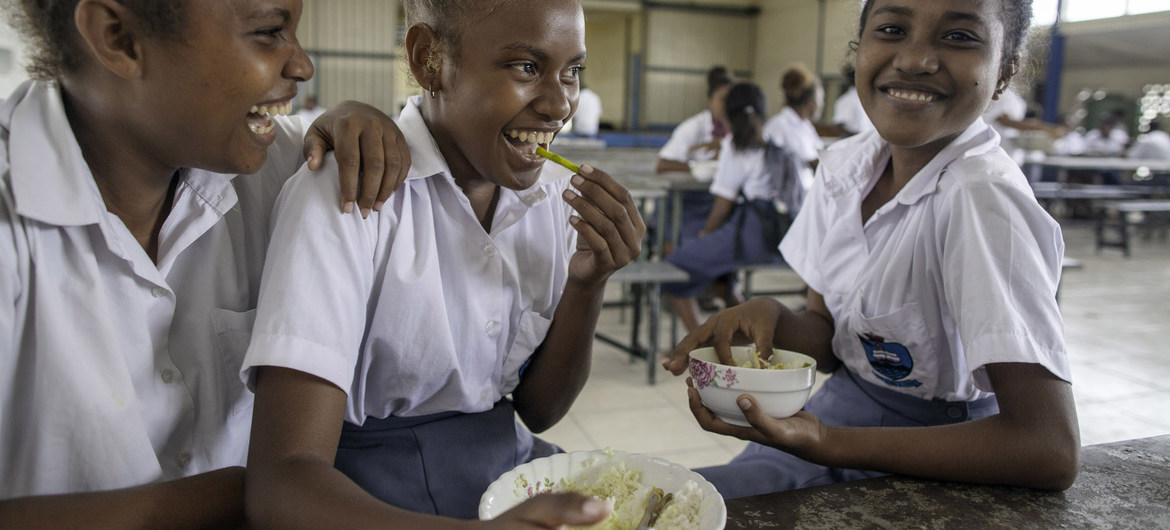According to WFP’s report, State of School Feeding Worldwide, 370 million children in 199 countries and territories were suddenly deprived of school meals, when schools closed due to the pandemic. That meal was for many their only nutritious food of the day.
David Beasley, WFP Executive Director, highlighted the importance of school meal programmes.
“That one meal a day is often the reason hungry children go to school in the first place. It’s also a powerful incentive to make sure they’ll come back after lockdown ends”, he said.
“We need to get these programmes running again – even better than before – to stop COVID destroying the futures of millions of the world’s most vulnerable children.”
Towards that end, WFP will build a coalition to support governments scale up their school meals programmes, working with development agencies, donors, the private sector and civil society organizations, according to the agency.
It has also launched a ten-year School Feeding Strategy to strengthen its global strategic role in school health and nutrition. In addition, the agency will promote research on school health and nutrition as a global public good, helping countries to access better evidence for more cost-efficient programmes.
Benefits of school meals
Before the coronavirus pandemic, national school feeding programmes delivered school meals to one in two schoolchildren globally – or 388 million children – more than at any time in human history, making them the most extensive social safety net in the world, according to the WFP report.
Studies have shown that school meals have a major impact on the lives of children, particularly those from poor families, the agency said, explaining that they stave off hunger, support long-term health and help a child learn and thrive. For girls, these meals are even more important, as they help keep them in school longer, reduce child marriages, and decrease teen pregnancies.
When school meal programmes use locally produced food, they also boost a community’s economy, creating stable demand and market, supporting local agriculture and strengthening local food systems.
The report highlighted that in the post-COVID-19 world, school feeding programmes will be even more of a priority investment, as they help countries to build a healthy and educated population, while supporting national growth and promoting economic development.
Up to $9 return for $1 investment
Efficient school meals programmes yield returns of up to $9 for every $1 invested, and create jobs, WFP said, pointing to its calculations that about 1,668 new jobs are created for every 100,000 children fed.
“After the turmoil of recent months, we must seize the opportunity to start building the better world we all want to see”, Executive Director Beasley urged, stressing that “WFP is fully committed to working with our partners to ensure that no child, regardless of where they live, goes to school hungry – or worse, doesn’t go to school at all.”
